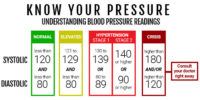Navigating Medicaid Eligibility for Seniors

Are you a senior in need of Medicaid assistance? Navigating the eligibility process can be overwhelming, but we’re here to help.
This article will guide you through the requirements, criteria, and application process, ensuring you understand what’s needed to qualify.
From income and asset requirements to medical necessity and disability determination, we’ll provide the information you need to successfully navigate Medicaid eligibility.
Let us help you access the services and support you deserve.
Key Takeaways
- Medicaid eligibility for seniors is based on income and asset requirements, with certain exempt assets not being counted towards resource limits.
- Seniors must meet age, citizenship, and residency criteria to be eligible for Medicaid, and documentation such as birth certificates and proof of residency is required.
- Medical necessity and disability determination are crucial for Medicaid eligibility, with the need for long-term care services needing to be supported by medical evidence.
- Understanding Medicaid spend down strategies and exempt assets is important for seniors to navigate eligibility, as reducing countable income and assets can help meet requirements.
Income and Asset Requirements
To determine your eligibility for Medicaid as a senior, you must meet specific income and asset requirements. Medicaid is a government program that provides healthcare coverage to low-income individuals, including seniors. When it comes to income, there are resource limits in place. This means that your income must fall within a certain range to qualify for Medicaid.
Additionally, there are certain exempt assets that aren’t counted towards these resource limits. These exempt assets include your primary residence, one vehicle, and personal belongings.
It’s important to understand these requirements and exemptions when applying for Medicaid as a senior. By meeting the income and asset requirements, you can ensure that you have access to the healthcare coverage you need.
Age and Citizenship Criteria
To qualify for Medicaid as a senior, you must meet specific age and citizenship criteria. The age requirement varies by state, but generally, individuals must be 65 years old or older. When it comes to citizenship, you must be a U.S. citizen or a qualified non-citizen. Documentation requirements include providing proof of age and citizenship. This can be done by presenting your birth certificate, passport, or naturalization papers. In addition to age and citizenship, you will also need to prove your residency in the state where you are applying for Medicaid. This can be done by providing a driver’s license, utility bills, or lease agreement. Ensuring that you have all the necessary documentation will help streamline the Medicaid application process and increase your chances of eligibility.
| Documentation Requirements | Proof of Residence |
|---|---|
| – Birth certificate | – Driver’s license |
| – Passport | – Utility bills |
| – Naturalization papers | – Lease agreement |
Medical Necessity and Disability Determination
Determining medical necessity and disability is a crucial step in assessing eligibility for Medicaid as a senior. To qualify for Medicaid, you must provide medical evidence that supports your need for long-term care services. This includes documenting your medical conditions, functional limitations, and the need for assistance with daily activities. Medical evidence can include doctor’s notes, test results, and treatment plans.
It’s important to gather all relevant documentation to strengthen your case. However, if your initial application is denied, don’t lose hope. You have the right to appeal the decision. The appeals process allows you to present additional evidence and arguments to support your eligibility.
It’s essential to understand the appeals process and seek assistance if needed to increase your chances of success.
Understanding Medicaid Spend Down
Understanding Medicaid spend down is an essential aspect of navigating eligibility for seniors. When it comes to Medicaid, seniors need to be aware of spend down strategies and exempt assets.
Spend down strategies refer to the process of reducing one’s countable income and assets to meet the Medicaid eligibility requirements. This can be done by paying for medical expenses or using assets for other purposes.
However, it’s important to note that not all assets are considered countable. Medicaid exempts certain assets, such as a primary residence, personal belongings, and a vehicle, among others.
Application Process and Documentation Needed
When applying for Medicaid, you will need to gather and submit the necessary documentation to support your eligibility, in addition to following the application process. The required forms and verification process are crucial steps in ensuring that your Medicaid application is processed smoothly. To make it easier for you to understand, here is a table outlining the required forms and the verification process:
| Required Forms | Verification Process |
|---|---|
| Proof of identity | Verify through government-issued identification such as a driver’s license or passport |
| Proof of income | Provide pay stubs, tax returns, or other relevant documents to verify your income |
| Proof of residency | Submit utility bills, lease agreements, or other documents that show your current address |
Frequently Asked Questions
What Are the Income Limits for Medicaid Eligibility for Seniors?
The income limits for Medicaid eligibility for seniors vary by state. These limits determine if you qualify for Medicaid coverage based on your income level, allowing you to receive the healthcare you need.
What Assets Are Considered When Determining Medicaid Eligibility for Seniors?
When determining Medicaid eligibility for seniors, assets such as real estate, investments, and savings are considered. However, there are asset exemptions and Medicaid planning strategies that can help you navigate these requirements.
Is There a Minimum Age Requirement to Qualify for Medicaid?
To qualify for Medicaid, you must meet the eligibility criteria, including the age requirement. The specific age requirement may vary depending on your state. It’s important to understand the criteria to navigate Medicaid eligibility successfully.
What Documents Are Needed to Prove Citizenship for Medicaid Eligibility?
To prove citizenship for Medicaid eligibility, you’ll need to provide certain documents. These documents may include your birth certificate, passport, or naturalization certificate. Make sure to gather them before starting the Medicaid documentation process.
How Does Medicaid Determine if a Senior Has a Medical Necessity for Coverage?
To determine if you have a medical necessity for Medicaid coverage, they assess your health condition and if it requires ongoing care. They consider factors like doctor’s recommendations, medical records, and the impact on your daily life.









